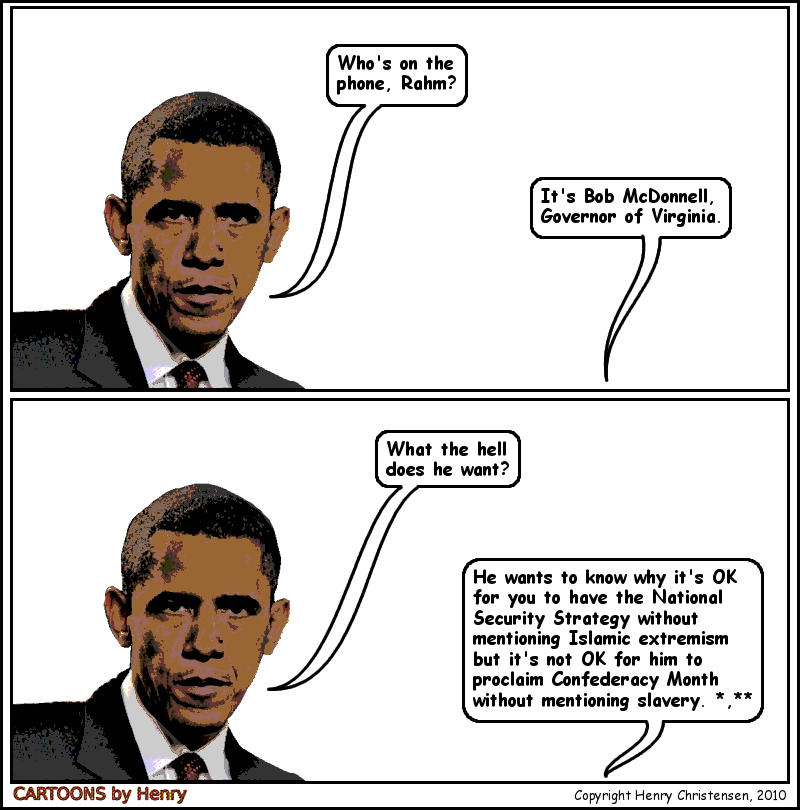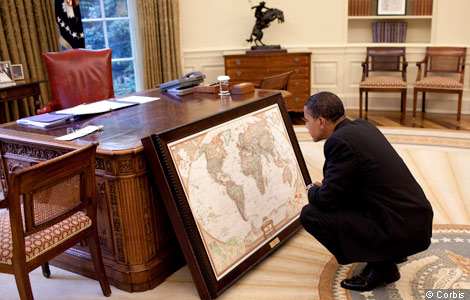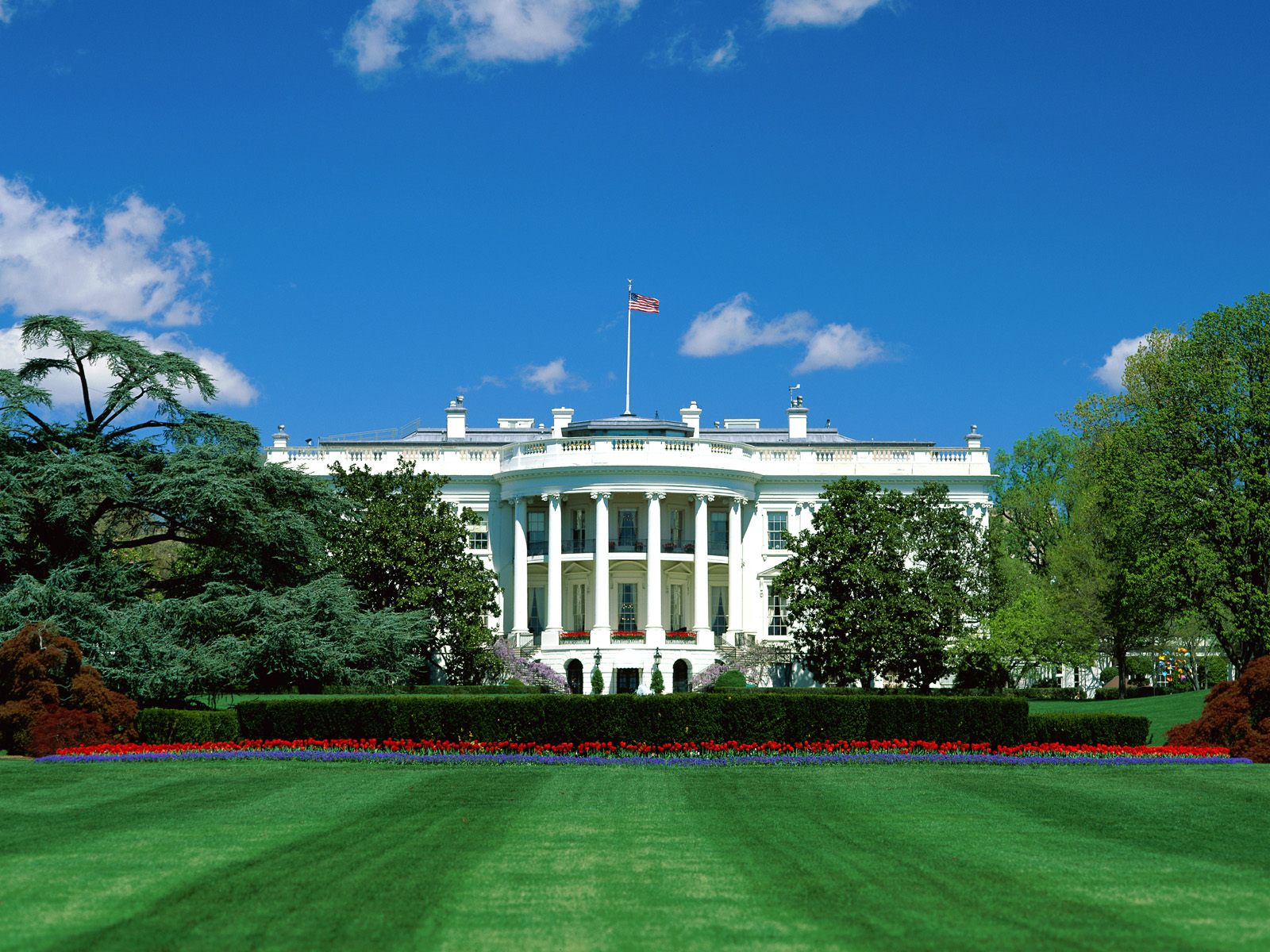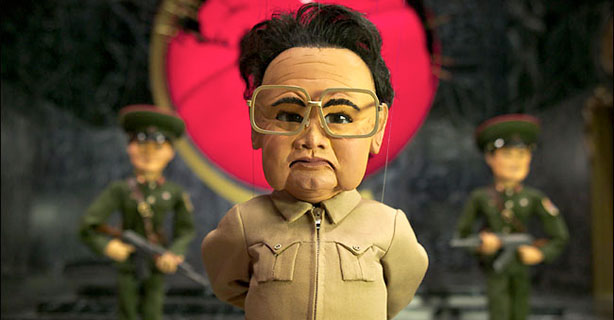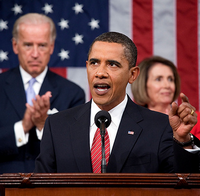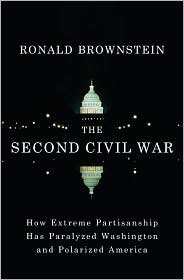
 Warren Christopher LAT op-ed by way of WPR's Media Roundup.
Warren Christopher LAT op-ed by way of WPR's Media Roundup.
Christopher makes his usual bland appeal for small steps leading to a legacy of modest, move-the-pile accomplishments.
Example:
During the 2008 presidential campaign, Barack Obama promised he would end our diplomatic isolation and pursue "engagement" in foreign affairs. His opponent tried to turn his proposal against him by saying it would be reckless and naive. Obama regarded his election as a mandate for engagement, and no campaign promise has been more faithfully carried out by his administration . . .
Beyond Mitchell's efforts, Obama has been using engagement in pursuit of his foreign policy goals. One of the president's chief goals, as he said on receiving the Nobel Peace Prize, is "to prevent the spread of nuclear weapons, and to seek a world without them." His personal intervention in talks with President Dmitry Medvedev of Russia was instrumental in finalizing a replacement agreement for the Strategic Arms Reduction Treaty, which expired in December. The signing in Prague last month was a tribute to their mutual engagement, producing major reductions in both nation's nuclear arsenals as well as advancing U.S.-Russian ties in general.
The priority that Obama is giving to engagement has also been apparent in recent exchanges with China. The president, unhappy when the Chinese sent lower-level diplomats to meet with him at the climate change summit in Copenhagen, announced an arms sale package for Taiwan. The Chinese objected stridently.
To prevent the exchanges from spinning out of control, the president sent Deputy Secretary of State James Steinberg to Beijing to reassure the Chinese ... The Chinese responded by announcing that President Hu Jintao would come to Washington for a nuclear summit ...
Improvement in human rights has been the policy goal of recent engagement with the repressive nation of Myanmar . . .
Policy goals, of course, sometimes remain elusive despite efforts at engagement. Iran, while initially intrigued by the idea of shipping uranium abroad for enrichment under International Atomic Energy Agency supervision, has now descended into a sea of political invective in the wake of controversial election results and an emerging internal opposition. Nevertheless, the president is working to build a coalition to impose a stricter set of sanctions . . .
Obama has judiciously used engagement in pursuit of our foreign policy goals. The measure of his success in using this tool will be judged by the effectiveness of our foreign policy in the hardest cases, like Iran and North Korea.
It's a decent capture and a decent defense, and it expresses the root of my frustration with the seeming lack of any big think in this administration: SECSTATE has her lists and checks them off dutifully, Jones keeps the trains running at NSC, Gates runs his own kingdom--and well--but keeps his nose out of foreign policy, our special envoys are quite special and almost completely devoid of any accomplishments, the drawdowns proceed in Iraq and will proceed soon enough in Afghanistan and all balls are kept juggled.
What is the Obama vision? Oh yeah, the world without nukes--the Nobel made good. Like a Miss America contest focusing her answer down to world peace, there is an earnestness there, but likewise a distinct lack of imagination. Obama gets to run the US at this point in history, and all we get is a world without nukes?
Moses, my man, don't go promising the land of milk and honey at year one of the 40-year wandering.
I will admit it: I feel stale on the man. I wrote the 12-step recovery program for a superpower in Great Powers and Obama checked them all off in the first year--just like I hoped he would because it all seemed so obvious and logical to me (go overboard, well . . . then you apologize and make it better--not exactly rocket science). And the world (or just Norway--which is a decent approximation of the world's conscience) was just so happy in return ("A superpower that apologizes!") that it gave him the Nobel for Peace, even though he hadn't done anything concrete--just indicated that he would be far more polite and reasonable and consensual than his abrasive predecessor.
And then I waited for something to emerge after the first, realigning year.
And I'm still waiting. The nukes thing, I will admit, doesn't do anything for me. I think it's goofy and meaningless and naive and a colossal waste of time. I know the man is busy with the economy and a rancorous Congress and he wants primarily to focus on domestic issues, but I think that window is going to close fast--as in, November.
Eventually, this administration will have to show more vision than simply treading water and keeping its head up at all times. Eventually, when there's not much else that can be done in the domestic sphere, Obama will turn, as all presidents do, to foreign policy.
And he's going to need something beyond a world without nukes and everybody getting along. Nothing that wrong with either notion, in the abstract, but in aggregate they do not constitute leadership. I see a world where China, India, Turkey, Brazil and others are all moving faster than the current, but we are not.
And the Obama administration does not seem to realize this. They seem very proud and happy just to keep the balls all moving and in the air.
And that makes me very ambivalent, in a professional sense, about whether this guy is one-&-done or gets to stroke the back nine.
 Wednesday, June 9, 2010 at 12:07AM
Wednesday, June 9, 2010 at 12:07AM 